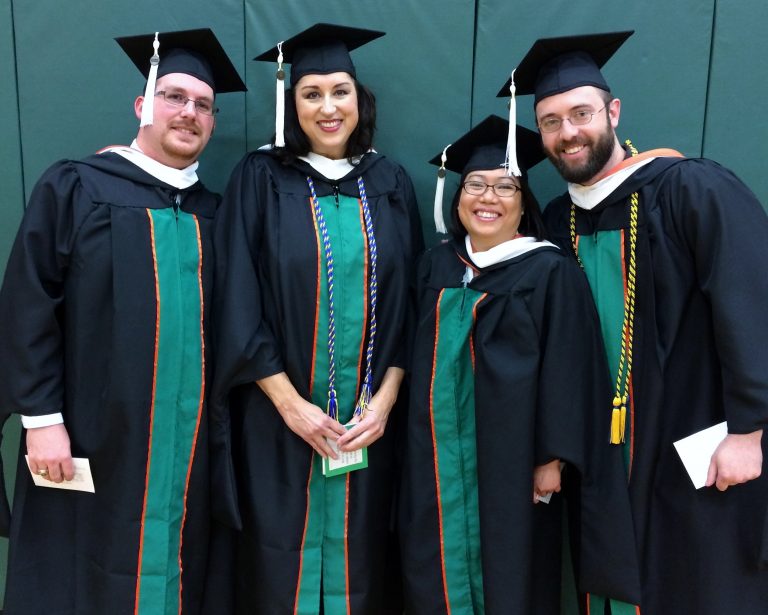
Graduate Programs
The Master of Arts in Teaching programs are designed to enhance the content knowledge and pedagogical content knowledge of science, technology, engineering, and mathematics (STEM) teachers. The programs provide teachers with the critical thinking and life-long learning skills based on a foundation of content knowledge in the sciences and mathematics essential for leaders in today’s schools.

Academic graduate programs serve predominately in-service teachers, but also include post-baccalaureates seeking certification. The programs focus on strengthening science/mathematics content with emphasis on pedagogical content knowledge, as well as development of skills in teacher leadership. Depending on the discipline, our graduate programs can support and enhance pre-kindergarten through community college level teaching.
We have two distinct concentrations reflected in our twin Master of Arts in Teaching (MAT) degrees. The MAT program in Science Education serves teachers from preschool to early college. The MAT program in Mathematics Education, originally designed to serve high school teachers with mathematics degrees, now serves teachers from middle grades through early college. In both cases, the MAT programs focus an integrated approach to strengthening:
- Content knowledge in science and/or mathematics relevant to the Texas Essential Knowledge and Skills and fundamental understanding
- Pedagogical content knowledge (knowledge and skills related to researched-based practices in teaching specific content)
- The nature of science and applied mathematics
- Metacognition (thinking about thinking and learning), and
- Mentoring/leadership.
Both MAT programs share a set of core courses that allow students to explore knowledge common to both disciplines. Students in Science Education or
Mathematics Education can then collaborate to integrate science and mathematics education and to provide a better education for their students. Core courses focus on critical evaluation of science and mathematics education research and applying that knowledge to the context of today’s changing world.
Because many graduates of these MAT programs will rise to leadership positions such as department head or science/mathematics coordinator in a local school district, the core courses provide fundamental skills in cognition, education research, and assessment so that MAT graduates can evaluate educational strategies and thoughtfully advise their colleagues about them. The STEM Content courses provide additional depth in specific science and mathematics content areas. Both programs are designed for individuals with significant ability in a science/mathematics discipline and a serious commitment to teaching.
The MAT programs provide forward-looking opportunities for professional development for both new and experienced teachers. Teachers in our program develop deep pedagogical content knowledge which enables them to guide their own students in the learning process. We also have tracts available for dual credit/community college teaching in select disciplines.
Master of Arts in Teaching in Science Education
MAT Science Education courses are designed to provide teachers with relevant content in a way that meets their individual needs and backgrounds.
Discipline specialists within the department teach courses in fields that model research-based best practices in science teaching; all of our science classes are hands-on and inquiry-based. Students may elect to write and defend a research-based thesis.
Non-Thesis Option: Traditionally, the Master’s in Science Education has been structured for practitioners. This works well for students expecting the Master’s to be their terminal degree.
Thesis Option: Those students who wish to pursue an advanced degree are better served to choose the thesis option. Students MUST apply for consideration for this option. This work can prepare the students for doctoral level research.
Master of Arts in Teaching in Mathematics Education
MAT Mathematics Education coursework is a content-oriented program with two tracts. The High School/Dual Credit track, for those with an undergraduate degree in mathematics or, at the minimum, a minor in mathematics, focuses on further development of mathematical content and pedagogical content knowledge (PCK). The Middle School track, the Foundations in Mathematics series, is designed for building competence in mathematics content and PCK in middle school math instruction.